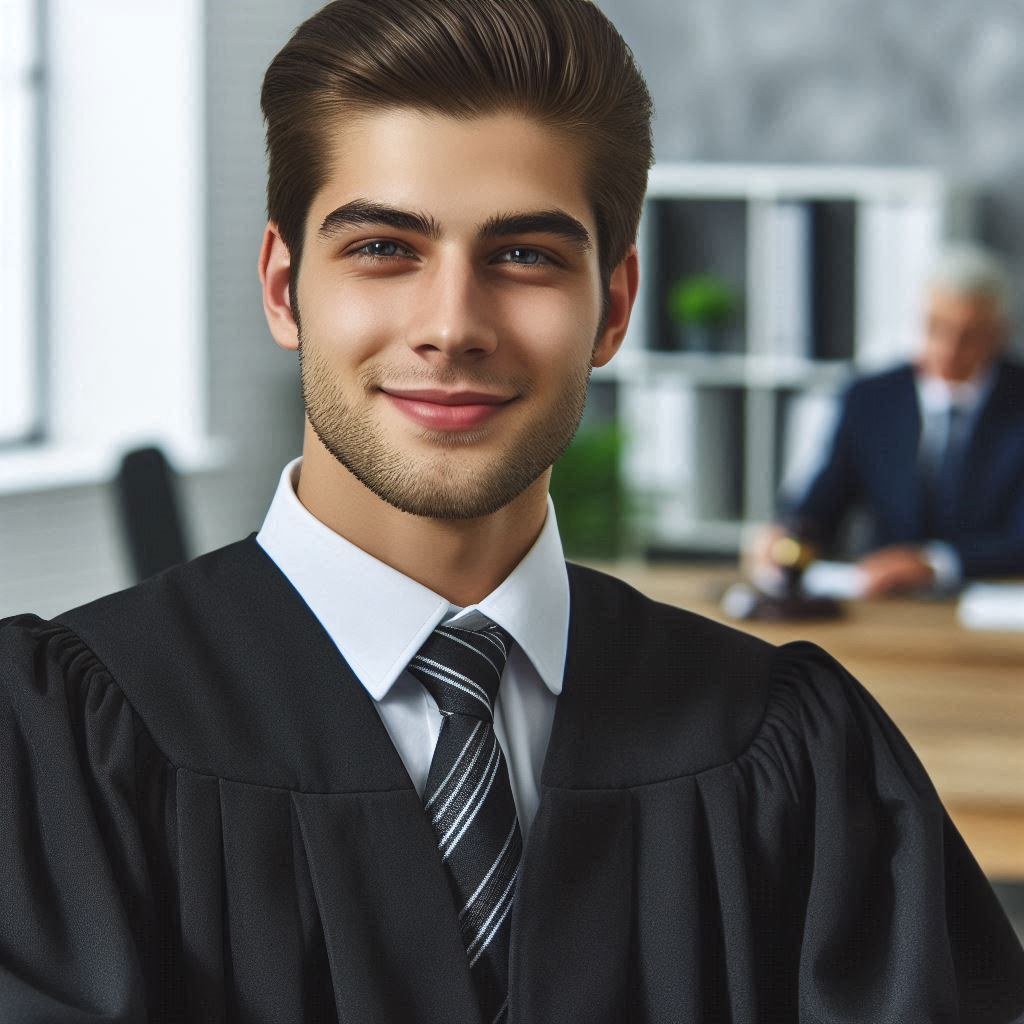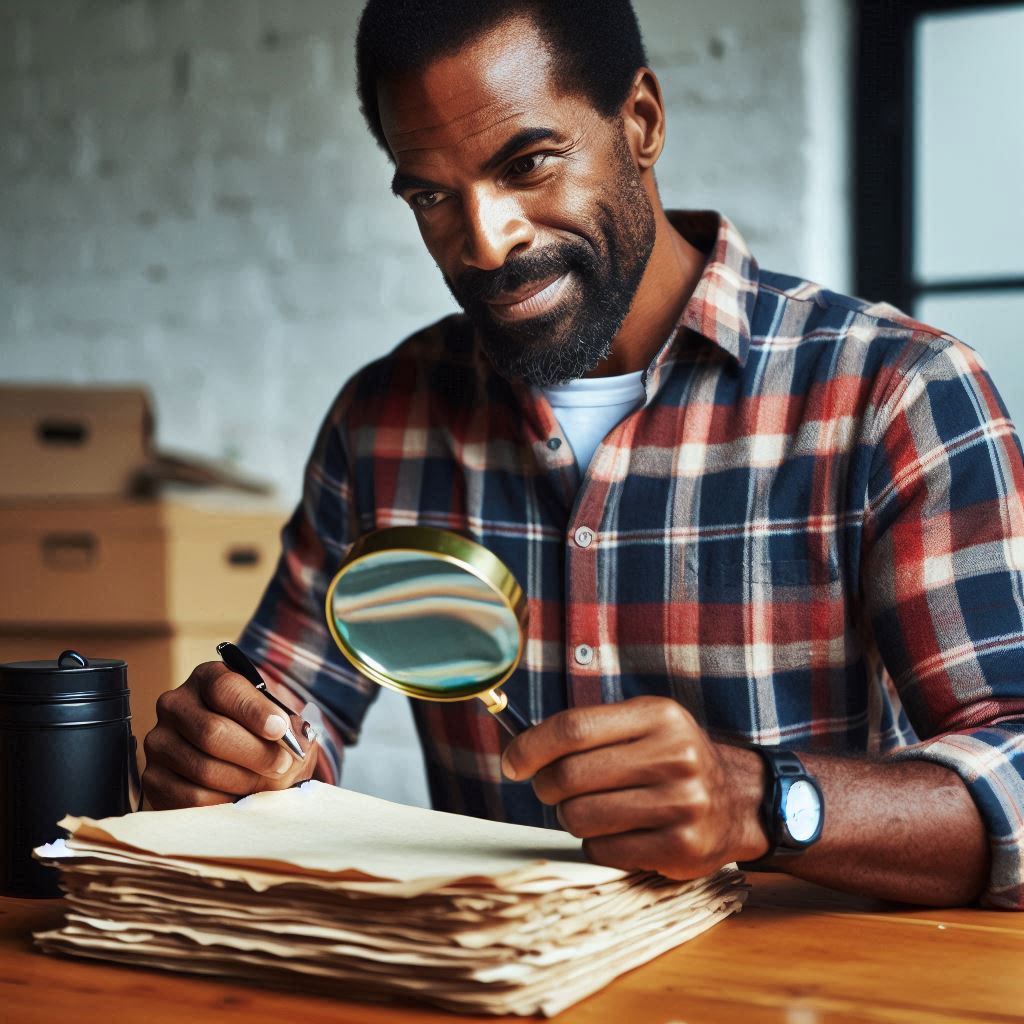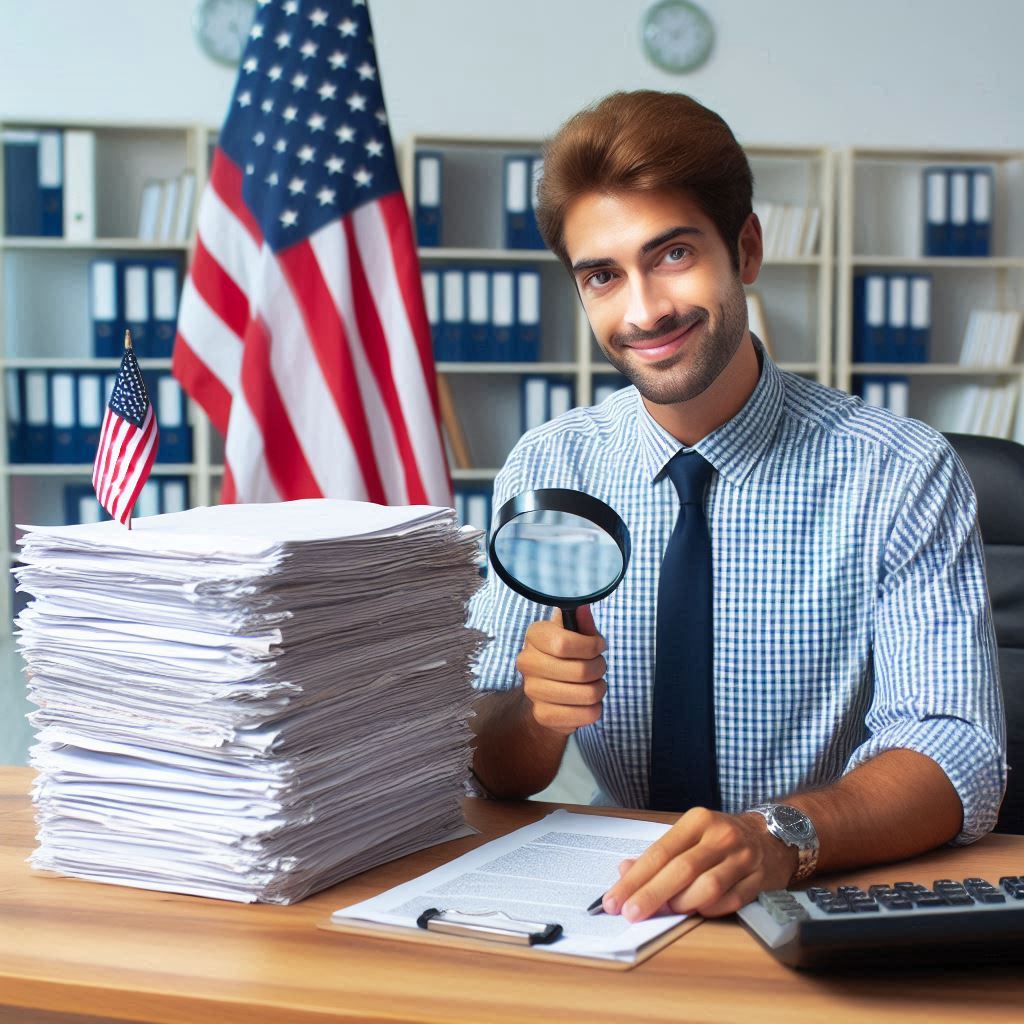Introduction
Jury Consultant Career Skills: In the legal field, a jury consultant plays a crucial role in helping attorneys select the right jurors for trials.
They analyze juror behavior, demographics, and assist in trial preparation to achieve favorable outcomes.
To succeed in this career, several essential skills are required.
A jury consultant must be able to analyze complex information, data, and juror feedback effectively to provide valuable insights for trial strategy.
Clear and concise communication is key in conveying trial strategies, findings, and recommendations to legal teams and clients.
Understanding jurors’ emotions, perspectives, and behaviors is vital for crafting persuasive arguments and selecting favorable jury members.
A solid understanding of legal processes, trial procedures, and courtroom dynamics is essential for providing accurate and reliable jury consultation services.
Thinking outside the box to develop innovative strategies for case presentation and juror selection can set a jury consultant apart in the legal field.
Being meticulous in reviewing case details, juror profiles, and trial strategies ensures thorough preparation and effective trial assistance.
Ability to adapt to different cases, legal teams, and courtroom environments is crucial for a successful career as a jury consultant.
By honing these essential skills, a jury consultant can excel in their career and make a valuable contribution to the legal team’s success.
Strong Communication Skills
In the field of jury consulting, strong communication skills are pivotal.
These skills underpin the effectiveness of a consultant’s interactions with clients, attorneys, and jurors, influencing the outcomes of legal cases and ensuring a seamless flow of information.
The importance of effective communication with clients, attorneys, and jurors
Effective communication with clients and attorneys is crucial for understanding case specifics, objectives, and strategy.
Jury consultants must articulate their findings, provide insightful recommendations, and negotiate complex scenarios with clarity.
Miscommunication or vagueness can lead to misunderstandings and impact case strategy adversely.
To excel, consultants should practice active listening, which involves attentively hearing clients’ needs and concerns, and responding with well-considered, precise feedback.
Similarly, communication with jurors is key to gathering valuable insights.
Consultants need to conduct voir dire (jury selection) and focus groups with a skillful balance of professionalism and approachability.
Clear, empathetic dialogue helps in obtaining honest, unfiltered opinions from jurors, which can be instrumental in shaping legal strategies.
Transform Your Career Today
Unlock a personalized career strategy that drives real results. Get tailored advice and a roadmap designed just for you.
Start NowWays to improve verbal and written communication skills
Improving verbal communication skills can be achieved through practice and feedback.
Participating in public speaking engagements or joining speaking clubs, like Toastmasters, can enhance confidence and articulation.
Role-playing different scenarios with colleagues or mentors can also provide practical experience and constructive critique.
Written communication is equally important. Jury consultants often draft reports, case summaries, and strategy documents.
To enhance writing skills, consultants should focus on clarity, conciseness, and coherence.
Regularly reviewing and revising written work, and seeking feedback from peers, can help refine these skills.
In summary, strong communication skills are fundamental for a successful career in jury consulting.
By honing both verbal and written communication, consultants can effectively collaborate with clients, attorneys, and jurors, ultimately contributing to successful legal outcomes.
Read: The Future of the Title Examiner Profession
Analytical Abilities
A successful jury consultant relies heavily on strong analytical abilities.
This skill set is crucial for evaluating case facts, understanding juror profiles, and devising effective trial strategies.
Here’s why analytical skills are indispensable and how to hone them.
How jury consultants must analyze case facts, juror profiles, and trial strategies
Jury consultants must dissect complex legal cases, breaking down evidence and witness testimonies.
This requires an in-depth understanding of legal principles and the ability to identify key factors that will influence a jury’s perception.
Consultants use their analytical skills to pinpoint weaknesses in the case, anticipate counterarguments, and suggest ways to strengthen the client’s position.
Knowing your jury is as important as knowing your case.
Consultants analyze potential jurors’ backgrounds, biases, and psychological tendencies.
This involves scrutinizing demographic information and behavioral patterns to predict how different jurors might react to various elements of the case.
Effective jury consultants use this information to tailor trial strategies that appeal to the jury’s values and perspectives.
Showcase Your Business Today
Reach thousands of readers actively exploring professional services. Publish your business profile and grow your audience now.
Publish NowAnalytical abilities are also essential for crafting trial strategies.
Consultants must anticipate the opposing side’s arguments and develop counter-strategies.
This involves evaluating the effectiveness of different legal tactics and predicting potential outcomes based on the juror profiles and case facts.
Tips for Developing Analytical Skills
- Practice Critical Thinking: Regularly engage in activities that challenge your reasoning, such as puzzles, debates, and case studies. This sharpens your ability to analyze information from multiple angles.
- Enhance Problem-Solving: Take on complex problems that require innovative solutions. This builds your ability to think outside the box and develop effective strategies under pressure.
- Stay Informed: Keep up with legal trends and psychological research to understand the latest strategies and methodologies used in jury consulting.
Mastering these analytical skills can significantly impact your success as a jury consultant, allowing you to provide valuable insights and strategic recommendations in high-stakes legal scenarios.
Read: Benefits of Hiring a Jury Consultant for Your Case
Research Skills
In the realm of jury consulting, research skills are paramount.
The success of a jury consultant hinges on their ability to conduct comprehensive research on potential jurors and case details.
This crucial skill helps ensure that attorneys are equipped with the insights needed to influence trial outcomes effectively.
Researching Potential Jurors
One of the primary responsibilities of a jury consultant is to gather in-depth information about potential jurors.
Understanding their backgrounds, biases, and predispositions is vital for shaping trial strategies.
This involves scrutinizing public records, social media profiles, and community activities.
By analyzing this data, consultants can predict how jurors might respond to various aspects of a case.
Case Details Investigation
Equally important is researching the specifics of the case at hand.
This includes reviewing legal documents, previous case rulings, and similar case studies.
The goal is to uncover any details that could sway juror opinions or impact the trial’s direction.
Consultants must be adept at identifying subtle nuances that could be leveraged to the client’s advantage.
Recommended Resources
Effective research requires access to reliable resources.
Databases such as LexisNexis and Westlaw offer comprehensive legal and public record information.
Social media monitoring tools like Hootsuite or Brandwatch can help track jurors’ online activity and sentiments.
Additionally, conducting surveys through platforms like SurveyMonkey can provide valuable insights into juror attitudes and behaviors.
In short, a successful jury consultant must master the art of research.
By thoroughly investigating potential jurors and case details using the right resources, consultants can provide attorneys with strategic advantages that significantly impact trial outcomes.
The precision and depth of their research often determine the effectiveness of their consulting services, making this skill essential for a thriving career in jury consulting.
Read: Title Examiner Internship: Gaining Valuable Experience

Emotional Intelligence: Key to Thriving as a Jury Consultant
In the high-stakes world of jury consulting, emotional intelligence (EI) emerges as a critical skill that can significantly impact career success.
Jury consultants often navigate emotionally charged environments, making it essential to understand and manage emotions effectively.
Understanding and Managing motions
Injury consultants frequently deal with clients, jurors, and attorneys who experience intense stress and strong emotions.
An adept consultant must remain calm under pressure, as their responses can influence the outcomes of cases.
The ability to perceive and control one’s own emotions helps in maintaining professionalism, while empathy allows consultants to understand and address the emotional needs of others.
This dual capability is crucial for building trust, resolving conflicts, and crafting persuasive arguments that resonate with juries.
Strategies for Developing Emotional Intelligence
- Self-Awareness: Developing self-awareness involves recognizing and understanding your own emotional triggers and responses. Regular self-reflection and mindfulness practices can enhance this awareness. By being in tune with your emotions, you can manage them more effectively and avoid letting personal feelings interfere with professional judgments.
- Empathy: Cultivating empathy is vital for connecting with diverse individuals and understanding their perspectives. Actively listening and asking open-ended questions can help in grasping the emotions and viewpoints of clients and jurors. Practicing empathy allows for better communication, more effective problem-solving, and the ability to tailor strategies to fit emotional contexts.
- Emotional Regulation: Learning to regulate emotions involves techniques such as deep breathing, cognitive restructuring, and stress management. These practices help in maintaining composure during challenging situations, ensuring that reactions are thoughtful rather than impulsive.
By honing these aspects of emotional intelligence, jury consultants can enhance their effectiveness in high-stress scenarios, build stronger client relationships, and contribute to more favorable outcomes in legal cases.
Read: What to Expect in a Title Examiner Job Interview
Cultural Competence
In the realm of jury consulting, cultural competence is a crucial skill that can significantly impact the outcome of a trial.
The significance of recognizing and respecting cultural differences among jurors
Recognizing and respecting cultural differences among jurors is essential for a jury consultant to effectively evaluate, communicate with, and persuade the jury.
Cultural competence involves understanding and appreciating the diverse backgrounds, values, and perspectives that jurors bring to the courtroom.
This sensitivity helps consultants avoid biases and assumptions that could skew the assessment of a juror’s reactions or decisions.
By acknowledging these differences, consultants can tailor their strategies to better connect with and influence jurors from varied cultural backgrounds.
How to enhance cultural competence through education and exposure
Enhancing cultural competence starts with education.
Consultants should seek out training programs or workshops that focus on cultural awareness and sensitivity.
These programs often cover topics such as implicit biases, communication styles, and cultural norms, providing valuable insights into how different cultures perceive and react to legal proceedings.
Showcase Your Business Today
Reach thousands of readers actively exploring professional services. Publish your business profile and grow your audience now.
Publish NowExposure to diverse environments also plays a significant role.
Engaging with communities from various cultural backgrounds through volunteering, attending cultural events, or participating in discussions can broaden a consultant’s perspective.
This hands-on experience helps consultants build empathy and improve their ability to relate to jurors from different walks of life.
Ultimately, cultural competence enables jury consultants to create more effective strategies and recommendations by ensuring they are inclusive and respectful of all jurors.
By continuously improving their understanding of cultural differences, consultants can enhance their ability to navigate the complexities of the jury system and contribute to more equitable and successful trial outcomes.
Adaptability
The need for flexibility in responding to unexpected challenges during trials
In the fast-paced and often unpredictable world of legal trials, adaptability stands out as a crucial skill for jury consultants.
This role requires a keen ability to respond flexibly to unforeseen challenges, ensuring effective jury management and insightful trial strategy adjustments.
Courtroom dynamics can change rapidly.
A jury consultant might enter a trial with a well-researched plan, only to find that unexpected developments, such as a surprise witness or last-minute evidence, alter the case’s trajectory.
For instance, if a consultant has prepared a strategy based on expected jury reactions to certain arguments, they must swiftly adjust their approach if jurors exhibit different biases or if the trial takes an unforeseen turn.
Examples of how jury consultants can adapt their strategies to different court settings
A practical example of adaptability is seen when a jury consultant must navigate varying court environments.
In one setting, a consultant might deal with a highly formal courtroom atmosphere, requiring a conservative and restrained approach.
Conversely, another trial might take place in a more relaxed setting where jurors are less conventional.
In these situations, the consultant needs to modify their communication style and strategies to align with the courtroom’s tone and the jury’s attitudes.
Moreover, a consultant may encounter different legal teams and their unique dynamics.
Adapting to these variations is essential; strategies that work well with one attorney or law firm might need adjustment when working with another.
This flexibility can involve altering focus areas in jury profiling or modifying techniques used for mock trials and focus groups.
In essence, the ability to adapt is not just about handling the unexpected but also about leveraging these situations to strengthen the overall trial strategy.
Jury consultants who master this skill are better positioned to deliver impactful insights and recommendations, ultimately contributing to a more favorable outcome for their clients.
Legal Knowledge
As a jury consultant, having a solid foundation in legal knowledge is essential to effectively navigate the intricacies of the legal system and provide valuable insights to attorneys during trial preparation and jury selection processes.
Here are some key points to consider in relation to legal knowledge:
Importance of Understanding Legal Procedures, Regulations, and Terminology
To excel in your role as a jury consultant, it is imperative to have a comprehensive understanding of the legal landscape.
This includes being familiar with the various legal procedures that govern courtroom proceedings, the regulations that impact jury selection and trial strategies, as well as the terminology commonly used in the legal field.
Without this knowledge, you may struggle to effectively communicate with attorneys, interpret legal documents, or provide informed recommendations on jury selection.
Resources for Staying Updated on Relevant Legal Developments
In order to stay current with the ever-evolving legal landscape, it is essential to actively seek out resources that provide updates on relevant legal developments.
One valuable resource is subscribing to legal publications, such as law journals, magazines, and newsletters, that cover recent case law, legislative changes, and emerging trends in the legal industry.
Additionally, attending seminars, workshops, and conferences related to jury consulting and legal practice can help you stay informed about new strategies and best practices in the field.
Lastly, networking with legal professionals, such as attorneys, judges, and other jury consultants, can provide valuable insights and facilitate ongoing learning opportunities.
By prioritizing the acquisition and maintenance of legal knowledge, you can enhance your credibility as a jury consultant, build stronger partnerships with legal teams, and ultimately contribute to more successful trial outcomes for your clients.
Conclusion
A career as a jury consultant demands a unique blend of skills and expertise to effectively influence trial outcomes.
Central to success in this field are critical thinking, communication, and analytical abilities
Jury consultants must possess a deep understanding of human behavior and the legal system, ensuring they can interpret jury dynamics and provide valuable insights.
Critical Thinking is paramount. Jury consultants must evaluate complex information, discern patterns, and predict how jurors might react to different case elements.
This skill enables them to offer strategies that align with legal arguments and help shape case presentations to resonate with jurors.
Communication Skills are equally vital. Consultants need to convey their findings clearly and persuasively to legal teams, often distilling intricate data into actionable recommendations.
Effective communication also involves listening to clients’ needs and addressing their concerns with empathy and clarity.
Analytical Skills are essential for assessing juror responses and trial strategies.
Jury consultants utilize various methodologies, such as mock trials and focus groups, to gather data.
Analyzing this information helps them advise on jury selection and trial tactics that can sway verdicts in favor of their clients.
Interpersonal Skills are important for engaging with jurors and understanding their perspectives.
Showcase Your Business Today
Reach thousands of readers actively exploring professional services. Publish your business profile and grow your audience now.
Publish NowBuilding rapport and gaining trust can provide deeper insights into juror attitudes and biases, which is crucial for tailoring trial strategies.
Organizational Skills ensure that consultants can manage multiple cases, track data efficiently, and adhere to deadlines.
This helps in maintaining a systematic approach to case management and analysis.
A successful jury consultant career hinges on critical thinking, effective communication, strong analytical abilities, interpersonal skills, and organizational prowess.
To excel in this dynamic field, ongoing training and professional development are essential.
Embracing opportunities for learning and growth will help you stay ahead and deliver impactful insights in the courtroom.




